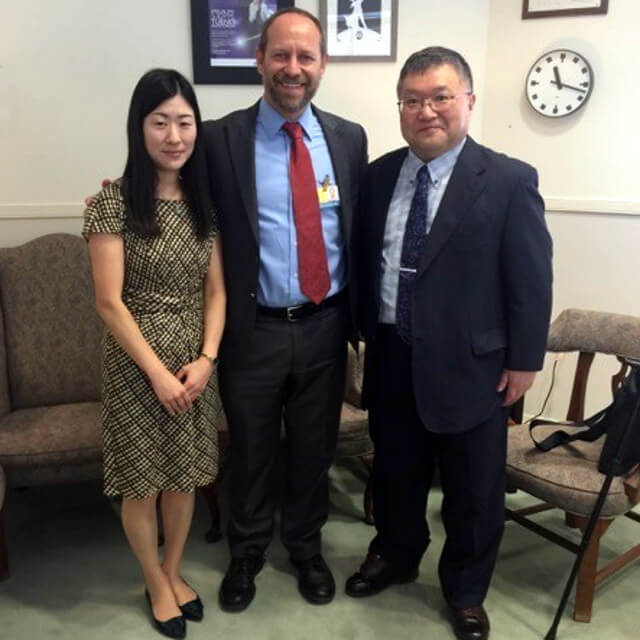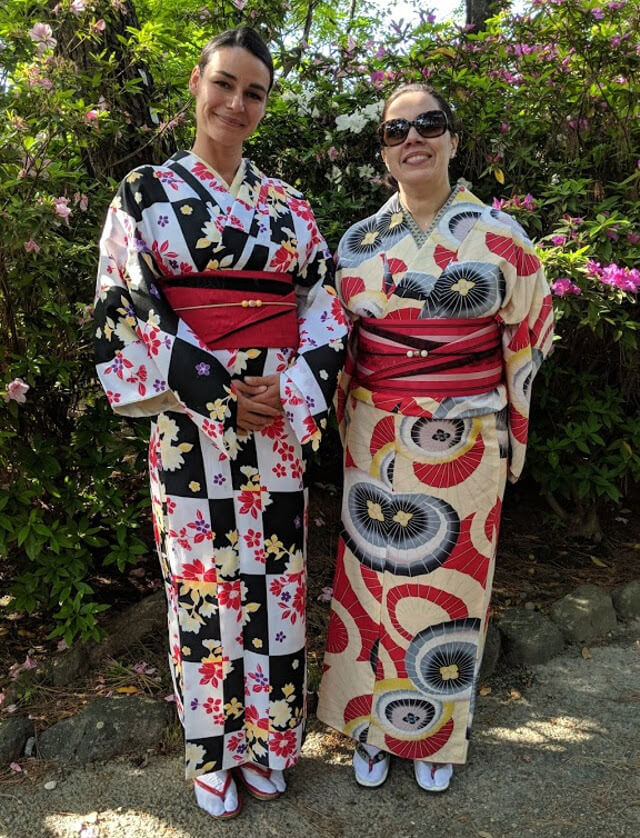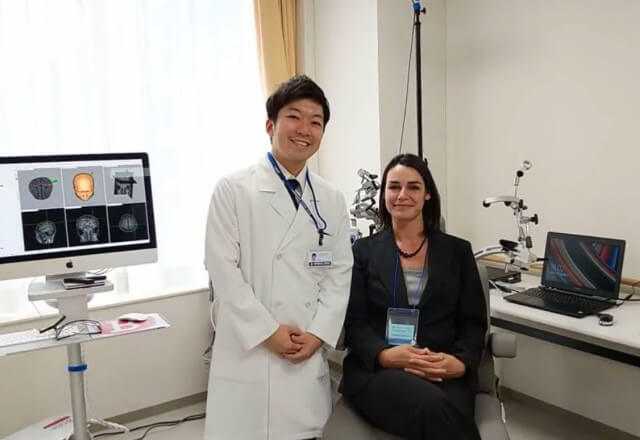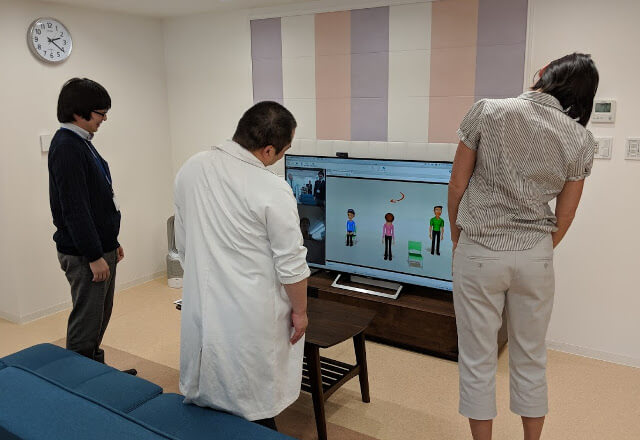 Pablo Celnik (center) with professor Eiichi Saitoh (right) and associate professor Yoko Inamoto (left) from Fujita Health University.
Pablo Celnik (center) with professor Eiichi Saitoh (right) and associate professor Yoko Inamoto (left) from Fujita Health University.The Johns Hopkins Department of Physical Medicine and Rehabilitation fosters international relations through academic exchange and collaborative research projects. One such long-standing collaboration is with a physical medicine and rehabilitation team from Fujita Health University (FHU) in Toyoake, Aichi, Japan.
Similar to Johns Hopkins, FHU is an academic medical center combining patient care, research and education. For more than two decades, the institutions have been working together and sharing knowledge on neurological rehabilitation, swallowing disorders and the use of robotics in rehabilitation medicine.
Marlis Gonzalez-Fernandez, Martin Brodsky and Jeffrey Palmer are a few of the researchers who have participated in this exchange from the Johns Hopkins side. From Japan, we have hosted, among others, Eiichi Saitoh, Yoko Inamoto, Yohei Otaka and Masahiko Mukaino from the Department of Rehabilitation Medicine at FHU.
Recently, the Johns Hopkins physical medicine and rehabilitation team visited our colleagues in Japan. Gabriela Cantarero and Gonzalez-Fernandez got a chance to learn about the Japanese health care model, rehabilitation research and culture.
 Gabriela Cantarero (left) and Marlis Gonzalez-Fernandez in Japanese kimonos at the Yasaka Shrine in Kyoto.
Gabriela Cantarero (left) and Marlis Gonzalez-Fernandez in Japanese kimonos at the Yasaka Shrine in Kyoto.“The public health system in Japan is very different. Patients can often stay up to three months in the hospital as they recover after a stroke or similar condition” says Cantarero. “These patients not only receive exquisite care, but, from a research perspective, this also creates a great opportunity to closely follow and study a specific patient population for an extended period of time.”
Gonzalez-Fernandez has been working with the FHU team for a while on research related to swallowing rehabilitation and the use of 320-row area detector computed tomography. Cantarero, member of the Human Brain Physiology and Stimulation Laboratory directed by Pablo Celnik, came to explore other common interests between the two institutions. Part of her visit was to help set up FHU’s first neurophysiology and neuromodulation laboratory. “Building a similar setup and data collection paradigm will make it easier to share research data and collaborate on projects across the two institutions,” points out Cantarero.
The teams discussed new potential areas for collaboration between the two rehabilitation departments. They included longitudinal behavioral and neurophysiological studies for stroke rehabilitation and other motor-related patient populations, as well as building new smart devices for home-based medical care.
 Gabriela Cantarero and Shintaro Uehara at the newly established noninvasive brain stimulation lab at FHU.
Gabriela Cantarero and Shintaro Uehara at the newly established noninvasive brain stimulation lab at FHU.Considering the growing aging population in Japan, building smart homes that can support the health and independent living of this aging population has been a major focus for FHU. The university works closely with Toyota Motor Corporation to design and build various new devices and interactive technology to provide medical support and therapy directly in peoples’ homes.
The Johns Hopkins team also got a chance to tour the FHU facilities and took part in the opening of a new inpatient rehabilitation wing. Cantarero and Gonzalez-Fernandez gave keynote lectures at the opening ceremony as well as special lectures on motor learning and swallowing for physical therapy students.
 Gabriela Cantarero and her Japanese hosts trying out a remote physical therapy session.
Gabriela Cantarero and her Japanese hosts trying out a remote physical therapy session.Shintaro Uehara is a former postdoctoral fellow in the Human Brain Physiology and Stimulation Laboratory, where he worked under the mentorship of Celnik. He recently joined the Department of Rehabilitation Medicine at FHU as a new faculty member studying motor control and neurophysiology in patients with movement disorders.